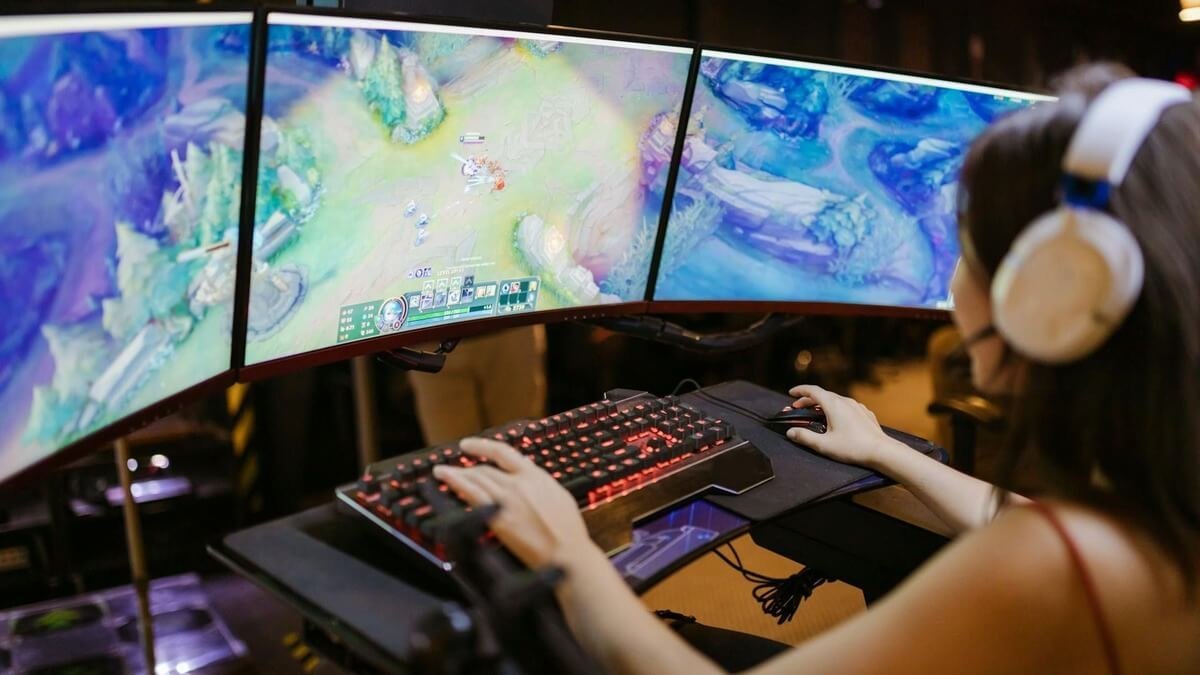This is a contributor content by Alexander ShelyutsinCo-founder of the GameFi project ZombieTrain.
GameFi is the new generation of digital entertainment where blockchain and gaming come together to create something a little different new. GameFi, for that matter, is terra incognita for gamers, developers, and investors. The hosts of sites transcend the conventional paradigm into an integrated space for recreation, economic empowerment, and technological innovation.
The New Frontier for Economic Participation
GameFi really turns the whole idea of gaming upside down—from pure entertainment to an activity positioned as an activity that even brings in some income. The average gamer usually invests their time and money with no visible return, except within the virtual game universe. This is exactly where GameFi changed the model: establishing full economic universes where players would earn crypto and create unique digital assets.
These games use skills, techniques, and time invested for value through P2E models, where success in these games ultimately allows users to access and participate in real-world value made possible by blockchain systems, and the deep economy is only for professionals. , powered by blockchain technology.
GameFi is a new form of financial development, at least in the case of developing countries. GameFi projects use blockchain technology to extend more earning possibilities to their users, becoming a new source of income in underserved areas and underprivileged communities.
Education and Blockchain Adoption
GameFi projects are great for blockchain education. A game can actually combine a number of decentralized technologies that make blockchain concepts friendlier for a mass-market audience. Such intuitive interactions with cryptocurrencies, smart contracts, and decentralized autonomous organizations truly allow players to feel how complex systems work.
For example, the basic ideas of DeFi and blockchain are fixed in some games: some games give users the possibility to trade NFTs and stake tokens for rewards-meaning in bigger Meaning, gaming has become a crash course of blockchain literacy with gamification and the whole -method of interaction.
Triggers for Technological Evolution
While GameFi is still an economy, it is also a hotbed of technological advancement within the blockchain space. Increased user activity on many popular GameFi platforms has in turn caused serious network challenges, such as intermittent congestion and transaction delays. All of this has pushed the limits of existing blockchain infrastructures and paved the way for innovations.
This problem was addressed by a solution in the form of a host of custom blockchains, created for the needs of a specific GameFi project and innovative scaling technologies aimed at boosting network performance. GameFi really pushes blockchain ecosystems to the limits, and it once again accelerates the pace of technological evolution, allowing it to catch up with changes in the continuum.
E-sports meets Blockchain Transparency

And with the rise of GameFi, gaming competitions, above all e-sports, are likely to go hand in hand. In other words, it is about the use of blockchain, where the prize distribution among the participants of GameFi tournaments will be both transparent and secure. Other methods include NFTs and tokens, which allow for entirely new ways fans can connect with their favorite players and teams. Apart from e-sports, it has opened a huge avenue in fantasy sports, such as fantasy football.
Marking and calculation clearly have implications of NFTs along with blockchain systems, thus ensuring fair play to build their trust among participants. Players are now able to sell and own digital assets that are representative of their fantasy teams, thus turning what was once a virtual pastime into a financially profitable one. GameFi has made a difference in how diverse players and fans engage with or monetize a game, whether through competitive play or through fantasy leagues.
Challenges and the Road Ahead
GameFi is not a buzzword. It’s a complex ecosystem with real problems that will make or break its promise. Above all, it comes down to economic sustainability, the avoidance of token inflation, and technological intricacy. It’s in this delicate balance for most projects where the real magic happens: creating meaningful financial incentives while designing games that are fun to play.
In the future, GameFi’s most successful projects will prioritize their communities, creating self-sustaining ecosystems where users are not just players but active contributors shaping the direction of the platform. These ecosystems will be driven by innovative management and economic models.
Conclusion: The Transformative Power of GameFi
More conceptual than technological, GameFi is an entirely new paradigm for value, community, and economic opportunity in the digital age. Blockchain gaming projects bring together the worlds of gaming and DeFi in a way that breaks down boundaries, increases global inclusivity, and allows us to reinvent our vision of digital ownership in ways we couldn’t do before.
Today, when problems related to sustainability and scalability are addressed by GameFi, it is unmatched in the future of entertainment, education, and financial empowerment. Continuing to evolve, GameFi is leading to a future where virtual interaction will empower real-world impact in a decentralized manner.
Also read: Empowering Communities: The Social Impact of DePIN
Disclaimer: This is a contributor article, a free service that allows professionals in the blockchain and crypto industry to share their experiences or opinions with the AlexaBlockchain audience. The above content has not been created or reviewed by the AlexaBlockchain team, and AlexaBlockchain expressly disclaims all warranties, express or implied, regarding the accuracy, quality, or reliability of the content. AlexaBlockchain does not guarantee, endorse, or accept responsibility for the content in any way. This article is not intended to serve as investment advice. Readers are advised to independently verify the accuracy and relevance of any information provided before making any decisions based on the content. To submit an article, please contact us by email.
